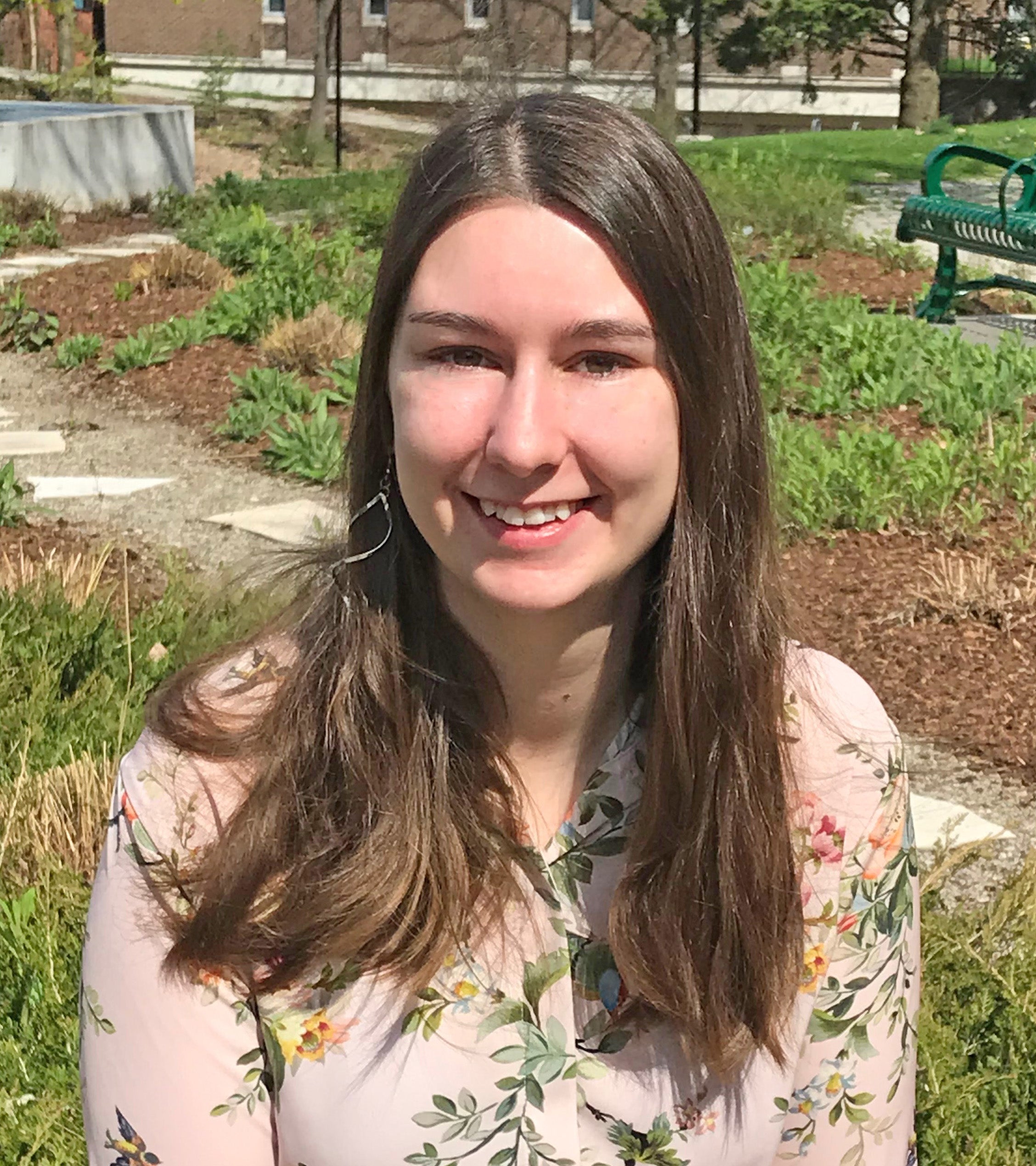
The Certificate in University Teaching (CUT) program provides a comprehensive teacher development experience that is open to PhD students at the University of Waterloo. Completion of the program is recognized by a certificate issued by Graduate Studies and Postdoctoral Affairs and listed on the participant’s transcript.
Each year, the Centre for Teaching Excellence and Graduate Studies and Postdoctoral Affairs award one CUT program participant in recognition and celebration of effort and reflection that go above and beyond the course requirements.
We are excited to announce that the 2019 CUT Award has been awarded to Sarah McCrackin, a PhD student in the Department of Psychology. Sarah’s research in cognitive neuroscience focuses on understanding the significance of eye gaze in social interactions with respect to understanding what people are thinking and feeling.
The award recognizes Sarah’s self-reflection throughout the program—with respect to personal teaching goals, pedagogical choices, and strengths as well as areas that need improvement.
We spoke to Sarah about her experience with the CUT program and her thoughts about teaching in a post-secondary environment.
Can you tell us more about the workshop you developed as part of the CUT program?
It was designed to help instructors implement three empirically supported strategies for teaching students critical thinking. Critical thinking is a huge part of what I do as a research scientist, and it's so important for raising informed citizens. When I set out to create the workshop, I reviewed the research and picked out strategies that have been repeatedly shown to strengthen critical thinking in students.
You were recognized in part because of the depth of your self-reflection. What kinds of reflection did the CUT program stimulate for you? Has that reflection had an impact on your teaching?
The CUT program gives you so many opportunities to try new things and see what works for you. You also have opportunities to reflect on what worked and what didn't. There were some active learning strategies that I thought were really effective at engaging students and some that didn't work. Towards the end of the program, you get to create a teaching dossier, and I think that's where I did the most reflecting. I identified my core beliefs about teaching and core strategies that I use in my lectures, and those made up my teaching philosophy. Now, whenever I'm working on a new lecture, I go back to my philosophy and make sure that my lectures align with it.
Do you have any advice for new instructors or graduate students interested in teaching?
My advice for graduate students is to not be afraid of trying new things. I think it can be easy to settle into a routine with your lectures, but trying new things is so important for improving and innovating as a teacher. I can't recommend the CUT program enough, because it helps you do that. You go to all these workshops that explore new teaching strategies and it's a safe way to try something new. Anyone who is interested in teaching should go for it as a way to gain confidence in teaching by working with a team of people whose job it is to help you be the best teacher you can be.